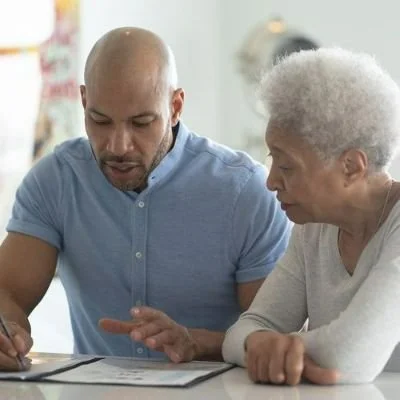It's Time to Decide!
Dear Caregivers,
“Nothing is more difficult, and therefore more precious, than to be able to decide,” said Napoleon Bonaparte. He may have been talking about a battle in wartime. But for caregivers of loved ones suffering from Alzheimer’s, the enormous value — and often agonizing process — of planning for a serious health care event in the future has never been more important.
Imagine that you suddenly find yourself in a hospital with your loved one facing life-threatening circumstances. As awful as it may be to merely imagine this, it is far more horrendous to be in this situation without any guidance from your loved one for how they would want to be treated under such circumstances. You may think you know what they would want, but without explicit directions, and the proper legal backup paperwork, you may not get a chance to make these wishes happen.
“Time and time again, families, providers, and hospital administrators struggle to interpret the wishes of patients who never made their healthcare wishes known,” says Nathan Kottkamp, a health lawyer and founder of the National Health Decisions Day, which takes place next Wednesday, April 16th. The purpose of NHDD is to raise awareness of the pressing need to bring your loved one into a conversation, and prepare the legal paperwork, in order that their exact wishes are known and respected.
If these topics are too complex or upsetting for your loved one to talk about, and they haven’t already completed a living will or other documents, your NAN Navigator can explain about how to proceed, and prepare yourself to make these decisions. But if you are able to have a conversation with your loved one about their wishes I encourage you to do it.
It can be a challenging conversation, to be sure, but as Napoleon points out, making these decisions ahead of time is precious. “I hope that people will mark their calendars for April 16, assemble those important in their lives, and just do it,” says Kottkamp. “Sometimes we just need a catalyst. National Healthcare Decisions Day is it.”
Here’s some concrete guidance on how to work through the major health decisions that need to be made with your loved one:
The Basics of Advance Directives:
In situations where your loved one cannot speak for themselves, medical personnel will turn to the next of kin to get help in making important health decisions. It is important to have your loved one’s wishes of how to respond in a serious medical situation be known in advance, through several documents such as an Advanced Directive and Living Will. Here's a guide to the basics.
Difficult Conversations: Legal Affairs:
The unfortunate end-result of the decline from Alzheimer’s comes when your loved one is no longer capable of independently making decisions about their care or personal possessions. This incompetence requires someone else to be assigned to advocate, speak, and make decisions on their behalf. Here’s how to set that up.
Do Not Resuscitate (DNR) Orders: What Are They, and Should I Discuss Them With My Loved One?
Many family caregivers identify taking on the role of medical decision maker for a loved one as one of their greatest challenges. Here are some steps that a family caregiver can take to confidently support their loved one’s wishes for end-of-life medical decisions.
Remember, if you can’t find the information you need on our website, you can always “Ask NAN” by clicking on this link.
Best,
Rosemary D Laird, MD, MHSA
Founder and Chief Medical Officer
“You may not control all the events that happen to you, but you can decide not to be reduced by them.”
— Maya Angelo




